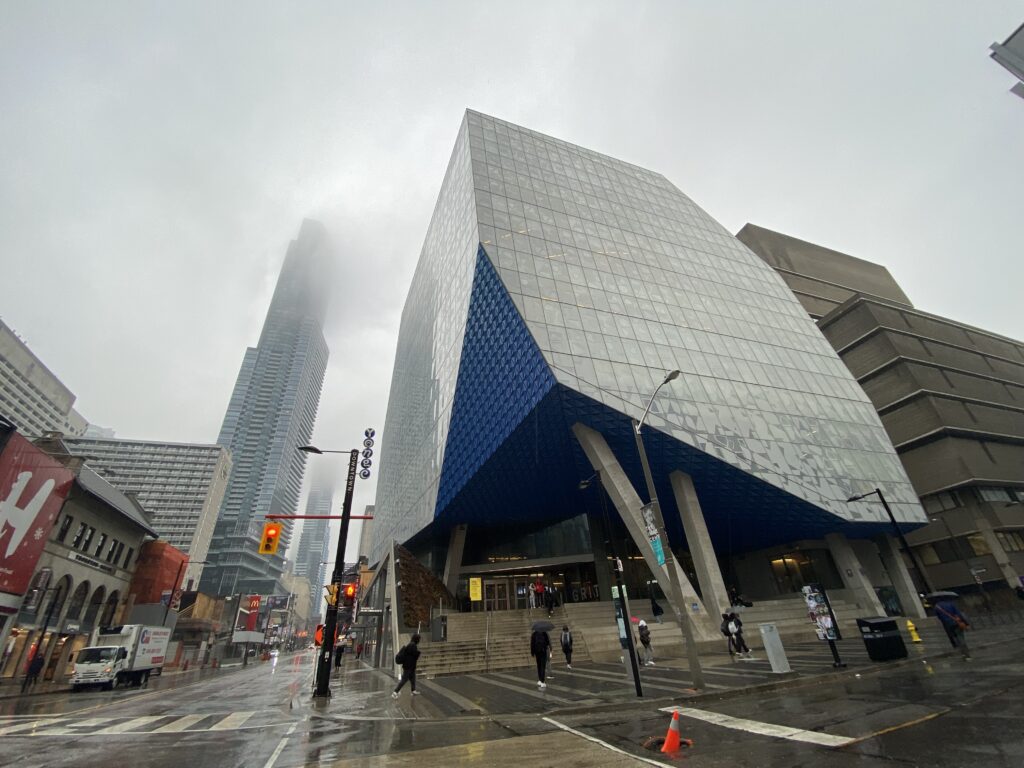
Listen to the full story here:
International students face widespread food insecurity and financial hardships—and are uncertain if they will also face further tuition fee increases in the upcoming academic year.
Toronto Metropolitan University President Mohamed Lachemi said in an interview with OTR on Monday that the provincial government has not yet informed post-secondary institutions how $1.3 billion dollars in funding announced by the minister of colleges and universities on Feb. 26 will be divided between individual colleges and universities. Additionally, while the federal government announced it will reduce international student admissions by 35 per cent across Canada, Lachemi said the Ontario government has not announced how large this cap will be for each institution. These factors make it unclear what tuition fees international students will see in the upcoming 2024-2025 fiscal year.
Hetu Patel, vice-president, education at Toronto Metropolitan University’s Student’s Union (TMSU), is also an international student studying computer science. She said her tuition fees have risen since her first year at TMU. While Patel said she will not be badly affected by further increases, she also expressed concern many international students are not so fortunate.
“There are so many stories I hear about students with housing problems and food insecurity,” said Patel.
Forty-three per cent of Canada’s international students study in Ontario, according to a 2021 report by the Canadian Federation of Students. Lachemi said 10 per cent of TMU’s students are international, which is low compared to the Ontario average of 19 to 20 per cent. Because of this, he estimates TMU will not be as badly affected by the international student cap as other Ontario post secondary institutions where they make up a greater portion of the student body. However, Lachemi said because of Ontario’s unusually large amount of international students, its institutions may be ordered to limit international students by an even larger degree in order to help the entire country meet its 35 per cent decrease.
“What they have indicated is the entire country will see a cap of 35 per cent for the issuing of visas,” said Lachemi, “and if you look at the demography of the province, that is effectively a 50 per cent cap for Ontario.”
Patel said the crises faced by international students across Ontario came up during conversations between members of provincial parliament and various student unions, during lobby week from February 25th to February 28th. Lobby week is an event in which student unions from across Ontario meet with MPPs to discuss issues they are facing, and possible solutions.
Kristyn Wong-Tam, the MPP for Toronto Centre, said that international students in Ontario graduate programs pay an average of $46,433 dollars a year. This is over four and a half times higher than what domestic students pay on average.
“They’re sitting side-by-side with domestic students in university classrooms, and one is paying 466 per cent less,” said Wong-Tam. “Same classroom, same instructor, same courses, and they’re going to graduate with the same degree.”
Wong-Tam said they met with students from across Ontario, including London, Ottawa, and Toronto, who all told her about soaring prices for food, housing, and transportation coupled with low-paying, dangerous work conditions. Wong-Tam heard from so many students who went to school hungry.
“And if you’re hungry,” said Wong-Tam, “you can’t focus.”

